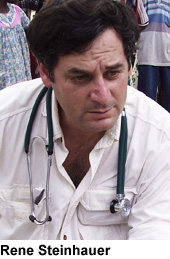Aviation calls it crew resource management. Nurses call it advocacy. (Republished from 2017.)

I teach the nursing skills lab at a small university. My students learn how to start IVs, manage pumps, safely move patients, and many other fundamental nursing skills. As an instructor, I frequently utilize the technique of completing a task improperly, hoping one of the students will notice. It is never a subtle mistake. Despite my delayed disclosure of an error, I notice that class members are frequently silent when they should be speaking out.
 Awhile back, I was teaching students how to move patients. I started the class by placing a heavier student on a sheet on a bed. I then asked two smaller students to lift that student. I heard students objecting that the individual was too heavy to lift, but they never shared their complaints with me. Instead, they followed my commands to grab the sheet on either side of the bed and lift. Just as they were to attempt the maneuver, I told them to stop. They looked at me blankly when I asked why they were not requesting assistance from other members of the class. I was trying to teach them about using teamwork and safe lifting procedures to reduce injury to themselves and the “patient.” In the process, I discovered a more insidious problem I had not previously considered.
Awhile back, I was teaching students how to move patients. I started the class by placing a heavier student on a sheet on a bed. I then asked two smaller students to lift that student. I heard students objecting that the individual was too heavy to lift, but they never shared their complaints with me. Instead, they followed my commands to grab the sheet on either side of the bed and lift. Just as they were to attempt the maneuver, I told them to stop. They looked at me blankly when I asked why they were not requesting assistance from other members of the class. I was trying to teach them about using teamwork and safe lifting procedures to reduce injury to themselves and the “patient.” In the process, I discovered a more insidious problem I had not previously considered.
My students would not challenge my authority. Even when they believed they could be injured and had verbalized that concern to others, they still attempted to obey my command to perform the dangerous task of lifting more weight than was appropriate. When asked why, they said, with others in the class nodding agreement: “Well, you’re the professor. We have to do what you say.”
I was shocked by what I had observed and realized that if I did not teach these students about challenging authority, it would be irrelevant to teach them safe healthcare practices because, faced with a challenge, they would not advocate for themselves or their patients.
A lesson from aviation
The aviation industry has learned the value of challenging authority. Many times, the last words heard on a flight recorder are those of the co-pilot saying, “I told you so!” Authority and leadership are important aspects of aviation and healthcare. In both, failure of a lower-ranking crew member to intercede when a problem was recognized has led to fatal results. To address the problem, the aviation industry created crew resource management (CRM) procedures that dramatically decreased the number of air disaster incidents.
With CRM, all members of the flight crew have the authority to break a chain of expected events by verbally interrupting that sequence and demanding that the rest of the crew respond to their concern. CRM requires—and trains—leaders to hear these messages and take action. It also trains the lower-ranking members of the team to speak up and take action. When CRM is in force, no retribution may come to an individual who voices concern. We have no such process in medicine.
Knowing vs. knowing how
To reduce risk and harm, nurses have a responsibility to advocate on behalf of themselves and their patients. In training my students to understand the best clinical practices, I had left out the most important lesson of all—the how, the process. It is not enough for nurses to know when to advocate for patients or for themselves. Nurses must be trained in the physical process of advocating. Nurses need practical experience in informing a physician or other authority figure of risks they see and of their refusal to comply with an order. Simply saying no is not the answer. Although a tactful approach needs to be utilized when challenging authority, the nurse must advocate. Failure to do so is a failure of the nurse.
It seems that every day I teach, I also learn. I have discussed this with my class, and I continue to provide situations where students must challenge my authority. But am I alone in this? I have not found this to be a structured part of nurse training. Should it be incorporated into the curriculum and clearly titled “Challenging authority”? As I look back on my nursing career, I see a culture in which nurses have been trained to follow orders. So, too, was the aviation industry. But it changed, and so must we. If nurses are not trained to challenge authority, they most certainly have a knowledge deficit. RNL
Rene Steinhauer, RN, EMT-P, has served as a nurse on all seven continents—as flight nurse in Antarctica; as combat medic in Iraq; as disaster manager following the Indian Ocean tsunami (2004), Hurricane Katrina (2005), Haiti earthquake (2010), and Typhoon Haiyan, known as Yolanda in the Philippines (2013); and as chief nurse in an Ebola Treatment Unit in Liberia (2014). He is the author of Saving Jimani: Life and Death in the Haiti Earthquake.
Editor's note: This article has been reposted because of technical problems with the RNL website when the article was first published on 11 May 2017.